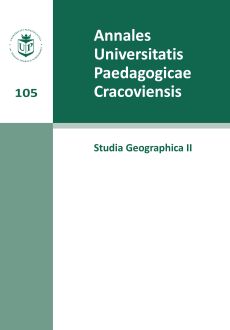Twórczość i kontekst ideologiczny w poglądach Wacława Nałkowskiego
Słowa kluczowe:
Wacław Nałkowski, filozofia, polityka, rozwój społeczny, grupy społeczneAbstrakt
Nałkowski lived in times of rapid transformation of civilization and during the period of ideological ferment, in a colonized country which at that time was Poland. Clearly disappointed with social and political reality, he turned his interest towards the trendy socialist ideas, seeing in them the hope for improving the living conditions of the society. The discerning analysis of the Nałkowski’s Social Writings (ed. 1951), allowed the author to assess the influence of the intellectual atmosphere on his activities and views. Although Nałkowski was a supporter of modern ideas, such as evolution, his intellectual independence and strength were the reason why he never became political activist. Moreover, he refused to join socialist movements and organizations. His ideological position and uncompromising character as well as the controversial, typical for him way of expressing opinions and views caused, that he was excluded from the political circles and condemned to an existence outside of academia, and often on the margins of intellectual life.
Bibliografia
Jędrzejczyk D., 1999, Myśl geograficzna Wacława Nałkowskiego, Uniwersytet Warszawski, Warszawa.
Nałkowski W., 1951, Pisma społeczne, oprac. S. Żółkiewski, PIW, Warszawa.
Ortega y Gasset J., 2004, Bunt mas, Wyd. Muza, Warszawa.
Wilczyński W. i E., 1990, Wacław Nałkowski 1851–1911, [w:] Geographers. Biobibliographical Studies, vol. 13, G. Martin (red.), Mansell, London, s. 45–52.
Pobrania
Opublikowane
Numer
Dział
Licencja
Złożenie artykułu do druku oznacza wyrażenie zgody na bezpłatne (tj. bez honorariów autorskich) przeniesienie autorskich praw majątkowych na Wydawcę i zezwolenie na wydanie pracy w postaci drukowanej w dowolnej liczbie egzemplarzy oraz zamieszczenie jej w postaci otwartego dostępu na stronie internetowej czasopisma, w bibliotekach cyfrowych oraz innych cyfrowych platformach wydawniczych, z którymi Wydawca zawarł lub zawrze stosowne porozumienie o udostępnianiu. W przypadku artykułów wieloautorskich przyjmuje się, że autor zgłaszający pracę („correspondingauthor”) ma pełnomocnictwo do reprezentowania pozostałych współautorów w tym zakresie. Autorzy są proszeni o podpisanie stosownego oświadczenia w tej sprawie.

